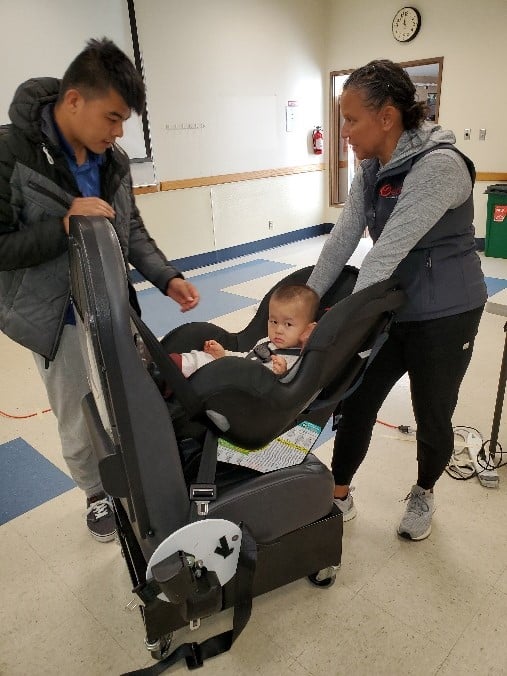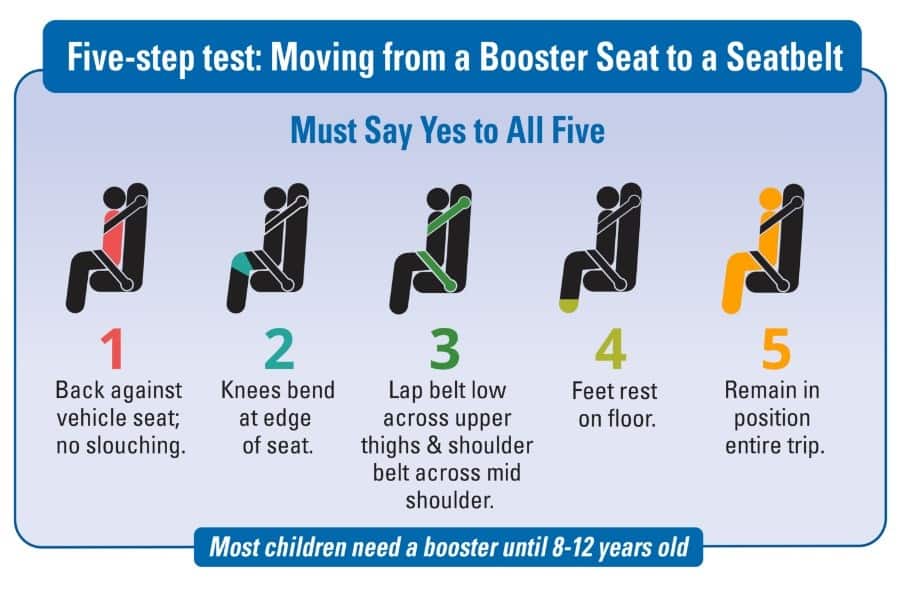The nearly 2,000 Afghan refugees who found themselves in Washington last fall were unprepared for their journey. “Many are coming in with just the clothes on their back. They literally fled with just what they could carry,” Nicky Smith, executive director of the International Rescue Committee in Seattle, told the Seattle Times.
Agencies like Smith’s help the refugees find the basic necessities – housing and jobs, access to medical care, and getting kids in school. Inevitably some basics are overlooked, as one refugee found when he was pulled over by law enforcement for not having his child in a child passenger safety seat. Educating Afghan refugees on the basics of traffic safety wasn’t covered as part of his family’s resettlement.
Enter Cesi Velez, project manager for Child Passenger Safety for the Washington Traffic Safety Commission (WTSC).
“It started with a very informal conversation I had with two of my child passenger safety leaders,” Cesi recalls. “We were concerned about the families coming in. And although they had some car seats available for transporting the children from the airport, that was about it.”
Wanda Yamashita from EBC provides hands on instruction.
Brandi Fields from EBC showing dad the basics of car seat safety.
Learning that the refugee families would be leaving temporary housing at the end of March, Cesi turned to Eastside Baby Corner (EBC) to help her educate Afghan families about keeping their children safe on Washington’s roads.
Working together with two car seat technicians from EBC, Wanda Yamashita and Cori Benson, the team prepared a training session that consisted of education about child passenger safety, fitting children into the appropriate seat, and a hands-on demonstration for each parent. Through a grant from WTSC, EBC purchased and provided car seats for the families.
The scale of training was daunting. A typical car seat check takes nearly an hour working individually with just one family who likely already have a working familiarity with Washington traffic safety laws and culture. The team had to start from scratch and trained multiple families, many with several children. And each child needed to be measured and weighed and matched with the appropriate car seat.
So, they pared down information to the essentials, translating educational material from English into Dari and Pashto, and found translators for the working sessions.
The team also worked to bridge cultural differences. “The resettlement agencies encouraged the mothers to attend the class because it’s the father who attends everything in their culture.” said Cesi.
The emphasis on traffic safety is also very different in the U.S., and the team provided context to help the families understand the importance of proper child safety restraints here. “It seemed a lot of people who came into the class weren’t excited about it,” says Cori, one of the EBC trainers. “And then very quickly their attitude changed as we explained what we were doing and why it’s important.”
Of course, wanting to keep your kids safe is a universal value. The families soaked up the information trainers provided. “One dad with three kids said, ‘Oh, can I just get my seats and go,’ but soon realized he had things to learn as well. He was probably the last person to walk out the door because he wanted to make sure he got it right,” said Wanda.
The children were also enthusiastic, eager to volunteer and even happy to sit in their car seats. “The kids were amazing, and so excited,” said Cesi. “They take ownership of these seats, they’re excited to have this item to call their own.”
The team held a total of three events, in SeaTac, Federal Way and Everett, and provided more than 130 car seats.
Wanda says that the program was successful. “I think the takeaway for me is to meet the family where they’re at. To get them the information they need right now, and make sure they are as safe as possible when they walk out that door from the education that I gave them.
The team is already planning ahead and will offer a similar program for Ukrainian refugees now resettling in Washington. Cesi is eager to keep going.
“I love traffic safety and working with kids. It’s just so fun.”
Judging from the smiles on the faces of the children, it seems they agree.
Before the car seats can be distributed, they must be assembled. Cori Benson lends a hand.
For more information on car seat safety, visit www.WACarSeats.Com





